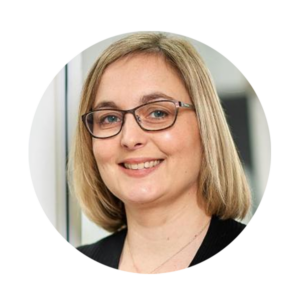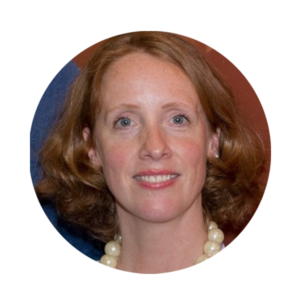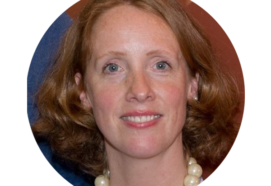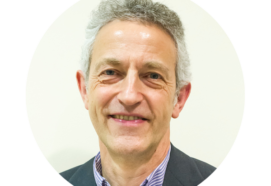In this In Conversation podcast, Dr. Seonaid Anderson is joined by Dr. Maddie Groom to discuss a current research project focusing on Tics and Tourette Syndrome called INTEND. INTEND stands for ImproviNg Tic Services in EnglaND.
Discussion points include:
- The ideas behind the project and how the project is funded.
- Insight into what Tics are, and their impact.
- How health care professionals are involved with the INTEND project and how they can get involved.
- The importance of a recommended service model and the impact of there being no NICE guidelines in the UK for Tic Disorders and Tourette Syndrome.
This episode is part of The Association for Child and Adolescent Mental Health’s series on Tourette Syndrome and Tic Disorders. The series explores the evidence-based research on Tourette Syndrome, and other Tic Disorders, as well as the education, treatments, and the influences of the pandemic and social media.
#ListenLearnLike
Subscribe to ACAMH mental health podcasts on your preferred streaming platform. Just search for ACAMH on; SoundCloud, Spotify, CastBox, Deezer, Google Podcasts, Podcastaddict, JioSaavn, Listen notes, Radio Public, and Radio.com (not available in the EU). Plus we are on Apple Podcasts visit the link or click on the icon, or scan the QR code.

Maddie is Director of CANDAL and Associate Professor in Applied Developmental Cognitive Neuroscience.
Maddie’s programme of research seeks to uncover the neurocognitive basis of neurodevelopmental disorders and apply these findings to clinical practice. A key focus of this research is to identify the mechanisms underpinning comorbidity between ADHD and autism spectrum conditions using techniques including cognitive testing, brain imaging and eye-tracking. (Bio and Image from The Institute of Mental Health)

Seonaid is a chartered research psychologist and freelance neurodiversity consultant with many years experience in neurodevelopmental disorders. She provides support to research professionals at every stage of the research process and to healthcare experts in their clinical work, for individuals, universities as well as the public sector. She provides specialist advice and guidance on the treatment and management of a range of neurodevelopmental conditions such as autism spectrum disorders (ASD), attention hyperactivity disorder (ADHD), Tourette Syndrome, dyslexia, and mental health. She is on Twitter @Seonaidanderso2 and can be found on LinkedIn.
Other episodes
- Episode One ‘Teens, Tics, and Tech’ – Camilla Babbage ‘In Conversation Tourettes Syndrome’
- Episode Two ‘Education, and Educating, about Tourettes’ – Lucy Toghill ‘In Conversation Tourettes Syndrome’
- Episode Three ‘‘Tics, and Tic Disorders; the sudden onsets and influences of the pandemic’ – In conversation with Dr. Tammy Hedderly’
- Episode Four ‘Cultural Differences in Tics and Tic Disorders’
- Episode Six ‘ADHD and Tic Disorders: Discussing the SATURN Trial’
- Episode Seven ‘Understanding Tic Disorders: A Round Table on Diagnosis, Treatment, and Research’
Transcript
[00:00:01.350] Dr. Seonaid Anderson: Hello, welcome to the In Conversation series for the Association of Child and Adolescent Mental Health, or ACAMH for short. I’m Dr. Seonaid Anderson. I’m a Chartered Research Psychologist and Neurodiversity Consultant with expertise in Tourette syndrome. I’m excited to be here today as part of our series of podcasts that ACAMH is hosting on Tourette syndrome and over the course of the series, we’ve been looking at the evidence-based research about Tourette syndrome and other tic disorders, as well as the education, treatments and the influences of the pandemic and social media.
Today, I’m speaking with Dr. Maddie Groom, who is Director of CANDAL and Associate Professor in Applied Neurodevelopmental Cognitive Neuroscience at the Institute of Mental Health at the University of Nottingham. So, firstly, just to explain that CANDAL stands for the Centre for ADHD and Neurodevelopmental Disorders Across the Lifespan.
Maddie, thank you so much for speaking with me today. It’s great to have you here, and I know that you are involved in a great many research projects about neurodevelopmental disorders, but today, we’re going to focus on a current research project about tics and Tourette syndrome, called INTEND. And INTEND stands for Improving Tic Services in England, which sounds very timely. Can you tell us about the ideas behind this project, please?
[00:01:42.430] Dr. Maddie Groom: Sure, yes, and thanks for inviting me to take part in this, Seonaid. It’s great to have an opportunity to talk more about this research. So, we know that in many regions of England, children and young people with tics and Tourette syndrome are often unable to access healthcare services for their tics. They experience long delays before being given a diagnosis and even once they get that diagnosis, they may be, then, unable to access treatment or other support. Which, as you can imagine, has a huge impact on the children and young people, their families and friends and also, the wider systems that support them, including schools.
[00:02:17.800] Dr. Seonaid Anderson: Okay. So, just to explain to listeners who may not be working with children and young people that tics are fast, repetitive muscle movements that can result in sudden and difficult to control body jolts or sounds. And common examples include blinking or twitching of the eyes, wrinkling the nose or grimacing or moving the tongue. And tics are involuntary and often distressing and they can be simple ones or more complex, and when both motor and vocal tics are present and last for more than a year, the disorder is named Tourette syndrome.
And if people are listening who are interested in finding out more information about tics and tic disorders like Tourette syndrome, then ACAMH has a topic guide on their website that gives a great overview of new developments and research, as well as treatment, and that is available on the ACAMH website.
So, Maddie, can you tell us a little bit more about how the INTEND project is funded and when it launched, etc.?
[00:03:22.349] Dr. Maddie Groom: Well, we received funding from the National Institute for Health and Care Research, the NIHR, who funded this project for a period of 16 months, and we just started on the 1st of November 2023.
[00:03:32.610] Dr. Seonaid Anderson: So, you and I have both been working in this field of Tourette syndrome for a number of years and it’s definitely a common theme that we hear from people with tics and Tourette syndrome and their families, who are seeking diagnosis and treatment, about the difficulty accessing healthcare service. So, this seems like a very helpful research project to be involved in.
I know that when I run behavioural therapy for tics training for healthcare professionals, they often ask about clinical pathways and we hear from Clinicians who want to set up new services or be able to better treat and support people with tics and Tourette syndrome. So, I guess that will, hopefully, be one of the aims of this project, as well?
[00:04:18.160] Dr. Maddie Groom: Yes, absolutely. We’re really aware that, obviously, this really impacts the children and young people and their families. They’re really struggling, really finding it difficult to know where to turn for support. But equally, we know that healthcare professionals are feeling perhaps lacking in confidence in this area. So, they may see children and young people with tics, but not always know how to assess or help them manage their tics. So, yes, we really hope that this project will provide people with clearer information, clearer guidance, on how to assess and manage tics and also, link them in with appropriate training and resources, as well.
[00:04:56.970] Dr. Seonaid Anderson: I’m excited to also be involved in the research project, as well, working on the PPI, the Public and Patient Involvement side, as well. And we’ve got a group of the parents and young people who will feed back and help guide the research project, as well. And you mentioned about healthcare professionals working with children and young people, and they will be involved in the project, as well. Can you explain a bit about that?
[00:05:26.910] Dr. Maddie Groom: We’re involving healthcare professionals in a number of ways in this research. We have healthcare professionals as part of our team. So, they’re advising us and guiding us on how we run the study and how we make sure that the findings are clinically meaningful and relevant. But we’re also reaching out to the population of healthcare professionals in a couple of ways.
The first way that people can get involved is to take part in our national survey. We’re asking healthcare professionals who have any level of experience working with children and young people with tics and Tourette syndrome to take part in an online survey and tell us about their experiences of trying to carry out assessment and treatment of tics, whether they feel confident in doing so, have they had any training, and do they have any training needs in this area? And we hope this will give us a really comprehensive picture of the national level of experience and training gap in terms of assessing and treating children and young people with tics and Tourette syndrome.
So, that’s one way that people can get involved, and then, the other way that we’re reaching out to healthcare professionals is that we’re looking for experts in the assessment and treatment of tics and Tourette’s in children and young people to consult with them and work with them to develop an expert recommendation for how tics and Tourette’s should be managed. So, what’s the ideal care pathway for these children and young people? And from this, we will then go on to develop some recommendations that we share with services and ICBs around the country.
So, yeah, very much keen and interested in working with healthcare professionals in this particular research project.
[00:07:00.169] Dr. Seonaid Anderson: Now, hopefully, we will have an audience of healthcare professionals listening to this podcast, as well, and they can get involved. I think it’s interesting in regards to the first part, the survey that you mentioned, it’s important that we reach out to clinical healthcare professionals who may not consider themselves experts, but they do, even occasionally, see children with tics. We’re looking for their input, as well. I think – I hope that people won’t, sort of, count themselves out of the research because they think, oh, well, I do see children with tics, but not that often. And would you agree with that?
[00:07:39.910] Dr. Maddie Groom: We want to get a range of views and experience and it may be that some healthcare professionals work in a service that only occasionally receives referrals or sees children with tics or Tourette syndrome. But nonetheless, we want to hear about their experiences. You know, perhaps they’re presented with a case in clinic. They may have very little experience of trying to carry out an assessment for tics, and we want to know about that. We want to know, you know, if people are struggling to do this, if they have those training needs. Then this will help us identify where those gaps are and we can plug in some recommendations around training as part of our recommended guidelines, when we develop them.
[00:08:19.760] Dr. Seonaid Anderson: And when we talk about ‘healthcare professionals’, that’s obviously a, sort of, a wide umbrella term, but, you know, it makes me think about professionals working in CAMHS. So, could be Psychologists, Nurses, Therapists, etc. It can be a whole different variety of healthcare professionals that could complete that survey?
[00:08:38.789] Dr. Maddie Groom: Including Occupational Therapists, Speech and Language Therapists, Psychiatrists and also, a range of experience and levels within each of those professions, as well. So, yes, absolutely, it’s a very broad approach in experience and training needs amongst a range of different healthcare professionals.
[00:08:58.620] Dr. Seonaid Anderson: And what about the other professionals in the NHS, as well? Once you’ve created these recommendations, who will that be shared with? I’m thinking about Commissioners, for example. Is that – are you going to get feedback from them, as well, about the recommendations that you’re going to create through the project?
[00:09:19.920] Dr. Maddie Groom: Yes, absolutely, and we’ve started that process already, actually. Our plan is that we consult regularly with, you know, the people who will, ultimately, want to hear about this research and want to be able to design and deliver services in line with the recommendations that we develop. So, we’ve started already reaching out to some of those groups. We’re holding regional workshops in specific parts of the region to talk to those with responsibility for designing and delivering services in this area. So, we just tell them about our research, tell them what we’re doing and then, when we do have those recommendations developed and in place, then we will go back and share those with them.
But also, it’s partly a consultation with them to identify, you know, what barriers might they face in adjusting their services for children and young people with tics? What do we need to take account of when we develop our recommendations? So, it’s very much this two-way communication between ourselves and the people on the ground, in healthcare services, to understand how best to make these recommendations work.
[00:10:23.310] Dr. Seonaid Anderson: There’ll be a link associated with this podcast for people to go in and complete the survey, which I think takes about ten to 15 minutes to complete. It’s not too onerous.
[00:10:35.180] Dr. Maddie Groom: No, it’s not too onerous. It probably takes a bit longer the more experience somebody’s got, but yes, it has been designed to be short and manageable and really, yeah, just capture that breadth of experience out there.
[00:10:48.290] Dr. Seonaid Anderson: And then, this other expert survey, called a Delphi survey, can you be a bit more specific about the, sort of, experts there? So, these are people that would more regularly see children with tics and tic disorders as part of their work. That’s the Delphi survey that you would be looking for them to complete?
[00:11:07.500] Dr. Maddie Groom: Yes, that’s right. So, this is a slightly different type of survey and we’re looking, as you say, for people who quite regularly work with children and young people with tics and Tourette’s as part of their role. And the reason for that is that we want people who are immersed in services, see how these services are working currently for these children and young people, maybe have some understanding of the national picture, as well. And therefore, also have some ideas and views and perceptions on how things could be improved, and, you know, in their role, what would they like to see done differently in the service they work in?
It’s also a slightly bigger commitment from people, because it – there’s three iterations of the survey and we would go back to the same experts for each iteration of the survey. And we feel that the gains that can come from that involvement in this particular survey are really significant, because people are helping to shape change in healthcare services for these children and young people.
[00:12:04.459] Dr. Seonaid Anderson: I think definitely worth that time commitment. We’ve heard from people having to wait many, many months, if not years, even, to try and get a diagnosis and subsequent treatment.
[00:12:17.959] Dr. Maddie Groom: What we’re hoping to see from this project that we develop a, sort of, recommended service model and that we can then introduce that nationally, recognising that there may well be some barriers in some regions to implementation. But then, very much taking that as an – as a, sort of, a challenge to be solved and working with those regional experts to ensure that implementation is as effective as possible.
[00:12:39.959] Dr. Seonaid Anderson: And when it’s complete, I mean, something that sticks in my mind is that for tics and Tourette syndrome, at the moment, there are no NICE guidelines in the UK. So, the National Institute of Clinical Excellence produces guidelines on different health conditions, but none for tics and tic disorders.
[00:12:59.019] Dr. Maddie Groom: It’s really startling to see the difference between tic disorders and other conditions that affect children quite a lot, such as ADHD, which has very careful, clear, structured guidance. There’s nothing of that nature for tics and Tourette syndrome, which we know compounds the problem, because professionals may not know how best to approach that assessment or treatment and they don’t then have those NICE clinical guidelines to consult, either.
[00:13:25.540] Dr. Seonaid Anderson: It may be a bit of a myth or a misunderstanding that hopefully, is more and more in the past, but it – I think there may have been a misunderstanding in the past that tics were quite rare. But in fact, the prevalence figures we have says that about 1% of the population have a tic disorder, like Tourette syndrome, so in fact, not rare.
[00:13:48.350] Dr. Maddie Groom: And actually, that’s the diagnosed prevalence. We know that there are more cases that don’t reach the attention of healthcare services, either because they’re, kind of, managing them in the community or because they can’t access services. So, the true prevalence of chronic tic disorders is likely to be higher than we are aware at the moment.
[00:14:10.620] Dr. Seonaid Anderson: Maddie, thank you so much for speaking with me today and hopefully, this has been helpful for many of the people listening, as well. Can you just highlight again for us – anyone who’s interested in taking part in either of the surveys or finding out more about the project in itself, we can have some information on the ACAMH webpages, but also, you’re on Twitter, as well. So, people can reach you that way?
[00:14:35.573] Dr. Maddie Groom: Yeah, so they can follow me on @MJGroom, and we do post the links to our surveys very regularly. We also have information available on the CANDAL website, as well, which we can post links to. So, yeah, a variety of ways to follow our work and get involved.
[00:14:51.720] Dr. Seonaid Anderson: That’s great, and so, that’s @M-J-G-r-double o-m, @MJGroom on Twitter, as well. So, thank you ever so much, Maddie. This has been really fascinating. You can also follow me, Dr. Seonaid Anderson, on Twitter @Seonaidanderso2, and you can also visit my website, www.neuro-diverse.org. For more details on Tourette syndrome, you can visit the ACAMH website on www.acamh.org and you can follow them on social media by searching ACAMH, A-C-A-M-H. Thank you so much for listening.




